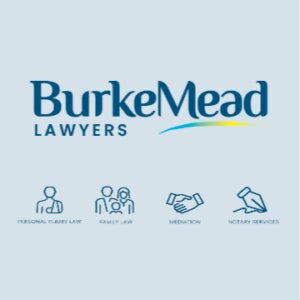Best Premises Liability Lawyers in Newcastle
Share your needs with us, get contacted by law firms.
Free. Takes 2 min.
List of the best lawyers in Newcastle, Australia
About Premises Liability Law in Newcastle, Australia
Premises Liability law in Newcastle, Australia is a subset of personal injury law that deals with accidents and injuries that occur on someone else's property due to their negligence. This includes, but is not limited to, slip and fall incidents, faulty security systems, or faulty construction. Under this law, property owners and occupiers are set to ensure the safety of all visitors on their premises. Failure to do so, which consequently leads to an injury, may result in the offender being held liable.
Why You May Need a Lawyer
You may need a lawyer in premises liability situations where you've been involved in an accident on someone's property and it is determined that the owner failed to maintain reasonable safety standards. If you're facing such an issue, a lawyer would help in proving negligence on the part of the property owner. Alternatively, if you're a property owner wrongly accused of negligence, you'll also need assistance from a lawyer to counter such claims.
Local Laws Overview
In Newcastle, Australia, the main legislation guiding premises liability is the Occupiers' Liability Act 1985. This Act implies a common duty of care on both the occupier and the owner of a premise to ensure all visitors or trespassers are safe from harm. This duty remains irrespective of the status of the visitor, as long as the occupier can reasonably foresee a risk. It is important to note however, that if a visitor willingly accepts any risks or hazards on a property, they may be responsible for any consequent harm or injuries.
Frequently Asked Questions
1. How do I make a premises liability claim?
To make a premises liability claim, you must have documentation of your injury and evidence that the owner of the premises failed to maintain reasonable safety standards. Consulting a lawyer quickly can help you assemble the needed evidence and guide you on the steps to take.
2. How long do I have to make a claim after an accident?
Generally, you have three years from the date of the accident to begin court proceedings for your personal injury claim. This rule comes from the Limitations Act 1969. However, it is best to take action as soon as possible.
3. Can a trespasser sue for injuries sustained on my property?
Under the Occupiers' Liability Act, even trespassers may have certain rights to safety on your property. However, it would be a point of legal contention whether you could reasonably have foreseen a risk to a trespasser.
4. What can I be compensated for in a premises liability claim?
In a premises liability claim, compensations can cover a variety of items including, but not limited to, medical and hospital expenses, loss of earnings, pain and suffering, and future care and treatment costs.
5. Do I need a lawyer to make a premises liability claim?
While it's not mandatory to have a lawyer, it is highly advisable. The legal process can be complex and challenging to navigate. A lawyer can help gather evidence, understand the value of your claim, negotiate with the other party, and represent you in court, if necessary.
Additional Resources
The Law Society of New South Wales and the Law Council of Australia provide resources that may be helpful in understanding more about your rights and responsibilities in premises liability cases. You can also refer to the Occupiers' Liability Act 1985 for an in-depth understanding of the duties imposed on property owners.
Next Steps
If you believe you have a premises liability case and need legal assistance, the crucial first step is to contact a lawyer with expertise in the field. Act promptly, as timelines are crucial in these cases. Upon consultation, your lawyer can provide specific advice about your situation, help you understand your rights, and guide you through the process.
Lawzana helps you find the best lawyers and law firms in Newcastle through a curated and pre-screened list of qualified legal professionals. Our platform offers rankings and detailed profiles of attorneys and law firms, allowing you to compare based on practice areas, including Premises Liability, experience, and client feedback.
Each profile includes a description of the firm's areas of practice, client reviews, team members and partners, year of establishment, spoken languages, office locations, contact information, social media presence, and any published articles or resources. Most firms on our platform speak English and are experienced in both local and international legal matters.
Get a quote from top-rated law firms in Newcastle, Australia — quickly, securely, and without unnecessary hassle.
Disclaimer:
The information provided on this page is for general informational purposes only and does not constitute legal advice. While we strive to ensure the accuracy and relevance of the content, legal information may change over time, and interpretations of the law can vary. You should always consult with a qualified legal professional for advice specific to your situation.
We disclaim all liability for actions taken or not taken based on the content of this page. If you believe any information is incorrect or outdated, please contact us, and we will review and update it where appropriate.









